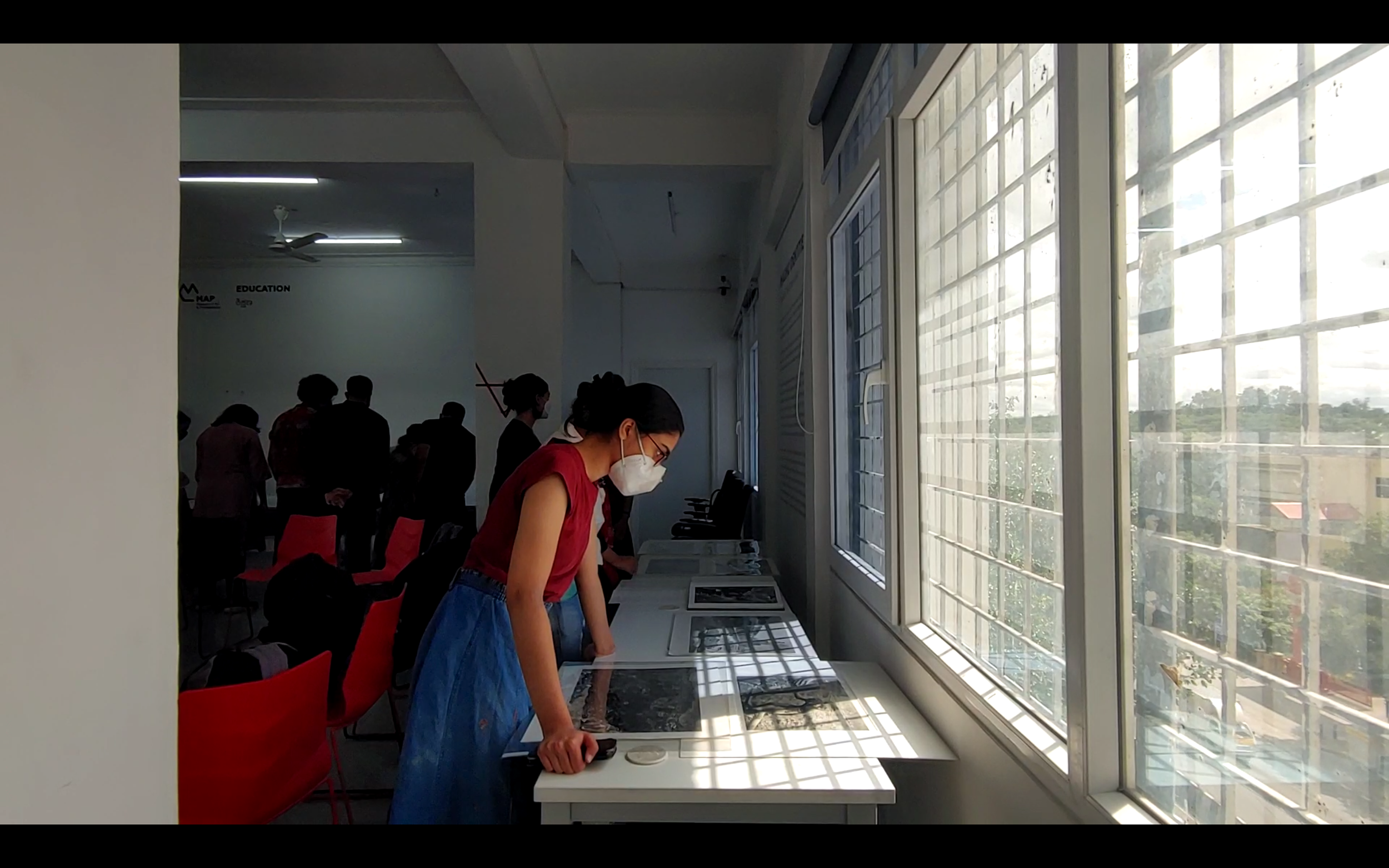SUMMER SCHOOL
ABOUT
During CARBON, SGB hosted a residential Summer School exploring the role of carbon in the Anthropocene. The aim of the project was to bring together theoretical frameworks, the lab, the field, and the archives, to construct an interdisciplinary and socially engaged way to think about carbon.
The school ran from 13 June 2022 to 08 July 2022, with 19 participants from across India. Using the rich resources of research and cultural institutions as well as community initiatives in Bangalore, the school explored how carbon is an integral part of the city. Participants also developed their own projects as a part of the school which addressed their specific concerns around climate change and carbon.
OUTCOMES
In the second phase of the programme, participants split up into groups and worked on projects that reflected their learnings. Below is a summary of the projects, which were guided by designer Jonak Das.
RATIONALE
In its establishment, the programme intended to support creative and critical thinking by making the participants fundamentally reevaluate carbon’s place in the anthropocene through a climate change and sustainability lens. The Summer School was a space for the participants to engage with multidisciplinary research; interact with and learn from peers and senior scholars; recognise the on-ground experiences of communities most impacted by climate change. The School broadened participants' perspectives on carbon as understood through the lens of climate change, allowed them to acknowledge their privilege and position in Indian society, and challenged them to think beyond their disciplinary training. Participants were able to appreciate not just the importance of learning outside the classroom, but also of co-creating knowledge around climate change through public engagement activities.
PROGRAMME STRUCTURE
Phase 1 - Learning:
The first two weeks involved intensive learning in the form of lectures, discussions, film screenings, lab visits, field visits, and an archive visit. This phase of the school focused on knowledge transfer. Participants were encouraged to make notes not just on the content of the lectures and field visits, but also on their experiences, thoughts, and reflections of the same. These notes became critical to the next phase of the school. We also screened four films around carbon during this time. The films complemented some of the concepts covered in the lectures, and served as interesting points of deliberation and discussion for the participants. This phase of the Summer School focused on guiding participants through the first two parts of Kolb's learning cycle: experiences and reflection (Kolb & Kolb, 2018).
Phase 2 - Assimilation:
In the second half of the programme, the participants were asked to create a project that involved research or any form of artistic expression to reflect upon their learning. Using their knowledge and reflective notes from Phase 1, participants found a few themes and topics of their interest. The anchoring mentor, Jonak Das, then helped create project groups based on individual interests. The participants were free to decide the content and mode of delivery of their projects, and they were mentored by the anchoring mentor as well as the SGB team. This phase of the Summer School aimed to close Kolb's learning loop of thinking and experimentation. It further encouraged participants to create experiences for other learners—thereby prompting the start of a new learning cycle.








